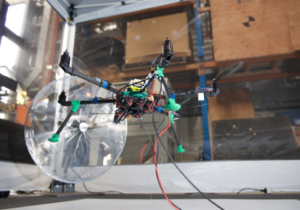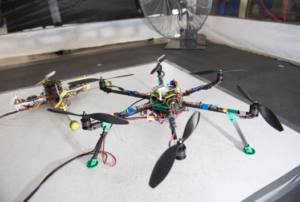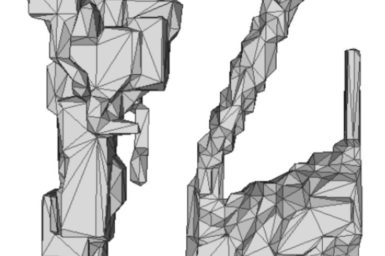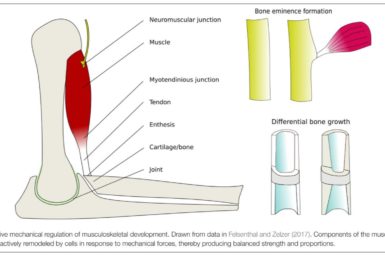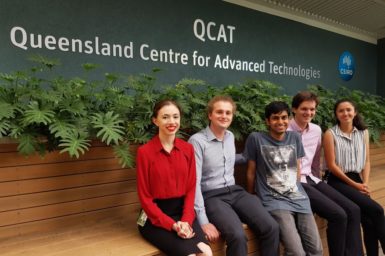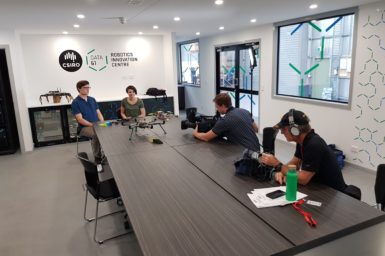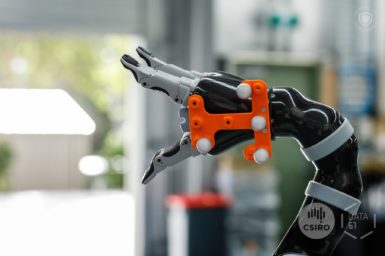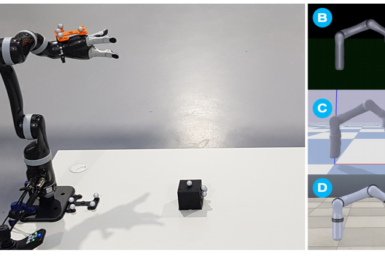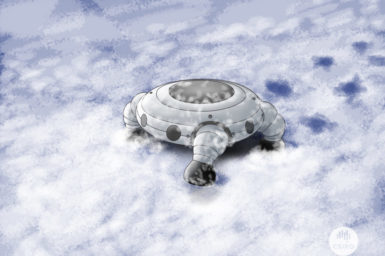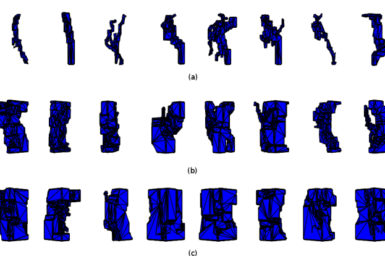Evolutionary Field Robotics
Automatic customisation of a robots’ body, brain, or both, allowing robots to survive and behave intelligently in harsh environmental conditions.
Evolutionary Computing is, in essence, a stochastic population-based search algorithm. Using a technique inspired by Darwinian evolution, a population of candidate solutions are evaluated on a task and awarded a numerical measure of how good its behaviour is, called fitness.
High fitness solutions are preserved in the population, and create children through random mutations and crossover with other fit population members.
All solutions then compete to stay in the population; less fit solutions die out and are replaced, so the population automatically improves over a number of generations to generate suitable behaviours given some user-defined objectives.
Running since 2015, the Evolutionary Field Robotics project, led by Dr David Howard from the Robotics and Autonomous Systems Group at CSIRO Data61, aims to build robots that are ready to handle the challenges of unstructured environments, using a design process that focuses on adaptation and intelligence.
“Luckily, we know of an incredibly powerful algorithm that creates intelligent, robust, and adaptive machines already: evolution”, says Dr Howard in the use of Darwin’s theory of evolution to build robots that can adapt and learn on their own, an article written for The Conversation.
According to Dr David Howard, “the key benefits of the Evolutionary Field Robotics project include automatically-generating control systems using advanced machine learning, the ability to evolve parts of our robots to specific tasks and environmental conditions; as well as automated modelling of unknown systems”.
“The central point is that artificial evolution provides a tool to adapt robots to their environmental niches, which might be key to successfully deploying robots for useful tasks in the harshest environments Australia has to offer”, says Dr Howard.
The Robotics and Autonomous System Group is well-positioned to explore this field of research given its highly skilled team which includes world class researchers and engineers.
The Group is open to partnerships and collaborations for research, development, and commercialisation. For more information, contact Dr David Howard.
- We have evolved controllers for real UAVs using both quadrotor and hexacopter platforms.
- The hexacopter learns to hover in strong wind using an evolved controller.
Related Content

